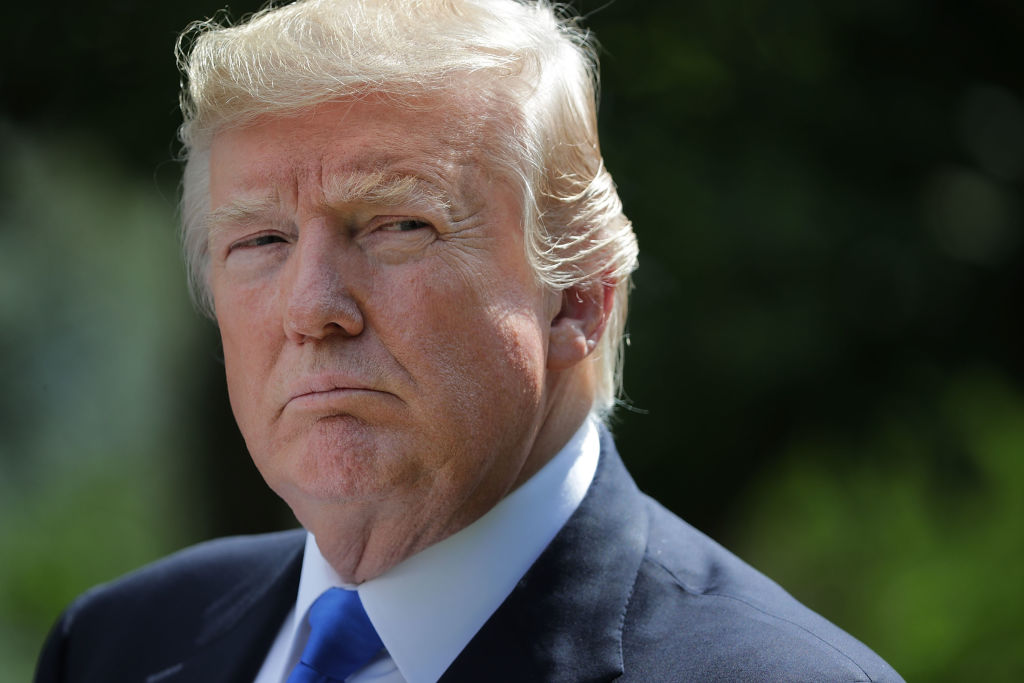Transgender Military Ban: 5 Facts That Rebut Trump’s Claims

President Donald Trump said today (July 26) that transgender individuals could not serve in the military.
"After consultation with my Generals and military experts, please be advised that the United States Government will not accept or allow … transgender individuals to serve in any capacity in the U.S. Military," Trump tweeted.
"Our military must be focused on decisive and overwhelming … victory and cannot be burdened with the tremendous medical costs and disruption that transgender in the military would entail," he continued in another tweet. [The 10 Most Outrageous Military Experiments]
A few thousand transgender people currently serve in the military, according to a 2016 report from researchers at the RAND Corporation. In June, the Trump administration delayed making a decision on whether to allow new recruits who are transgender to join the military, according to The New York Times.
Trump's announcement today goes against a policy enacted in June 2016 by the Obama administration, which allowed transgender individuals to openly serve in the military.
In that 2016 report from RAND, researchers led by senior political scientist Agnes Gereben Schaefer looked at the implications of having transgender individuals serve openly in the armed forces. The RAND Corporation is a nonprofit research organization that focuses on public policy. Here are five facts about transgender individuals in the military that the researchers found.
The total number of transgender individuals in the military is very low.
Sign up for the Live Science daily newsletter now
Get the world’s most fascinating discoveries delivered straight to your inbox.
In 2014, there were an estimated 1,300 to 6,600 transgender individuals serving in the military, according to the RAND report.
That year, there were more than 1.3 million active service members, meaning that transgender individuals made up between 0.1 and 0.5 percent of the total active military, according to the report.
In the Selected Reserve (the non-active portion of the military), the RAND study estimated there were between 830 and 4,160 transgender individuals in 2014.
Not all transgender service members seek transition-related treatments.
A subset of the total number of transgender individuals in the military choose to engage in any type of procedures to transition to a gender that differs from the one they were assigned at birth, according to the RAND report. And even among those who choose to do so, the transition may be "primarily social" and involve no medical treatments.
When medical treatments are involved, they can include hormone therapy, hair removal and for some, surgery.
Transition-related treatment would disrupt less than 0.1 percent of the active military.
The RAND researchers estimated that between 29 and 129 active-duty transgender individuals would seek transition-related treatment that could disrupt their ability to deploy each year. This estimate represents less than 0.1 percent of the total number of people in the military.
In comparison, in 2015, approximately 50,000 active-duty military personnel, or 14 percent, in the Army alone were ineligible to deploy for various legal, medical or administrative reasons, according to the RAND report.
Gender transition-related health care costs are "relatively low."
Though Trump cites "tremendous medical costs" related to transgender individuals serving in the military, the RAND study estimated these costs would fall between $2.4 million and $8.4 million each year.
These costs would increase overall military health care spending by an "exceedingly small" amount, the report said. Between 0.04 and 0.13 percent of the approximately $6 billion spent in 2014 would go to transition-related health care costs, the researchers found.
Foreign militaries can offer insights.
In 2016, 18 countries allowed transgender individuals to serve openly in the military, according to the RAND report.
For their report, the researchers focused specifically on four countries — Australia, Canada, Israel and the United Kingdom — and found that none of these countries' militaries "reported a negative impact on the operational effectiveness, operational readiness or cohesion of the force."
Originally published on Live Science.












